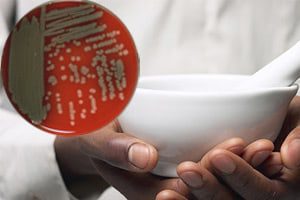
Following a recall of all sterile products manufactured by Specialty Compounding of Cedar Park, Texas, two of 17 people sickened have died. Texas Department of State Health Services spokesman, Chris Van Deusen, said the cause of death remains open and a link between the compounded drugs and the fatalities has not yet been confirmed, according […]
 Following a recall of all sterile products manufactured by Specialty Compounding of Cedar Park, Texas, two of 17 people sickened have died.
Following a recall of all sterile products manufactured by Specialty Compounding of Cedar Park, Texas, two of 17 people sickened have died.
Texas Department of State Health Services spokesman, Chris Van Deusen, said the cause of death remains open and a link between the compounded drugs and the fatalities has not yet been confirmed, according to The Associated Press (AP). Texas state health officials are collaborating with the Centers for Disease Control and Prevention (CDC). The CDC, according to the AP, is analyzing patient samples to determine if they share a strain and source; results are expect next week.
The last report on the matter, issued by the U.S. Food and Drug Administration (FDA), revealed that the then-reported 15 illnesses involved patients who had all received an infusion of calcium gluconate 2 grams in Sodium Chloride 0.9 percent for Injection infusion that was supplied by Specialty Compounding. The patients developed bacterial bloodstream infections that were caused by Rhodococcus equi; the infections are believed to be related to the infusions.
Cultures from an intact sample of calcium gluconate compounded by Specialty Compounding revealed growth of bacteria that was consistent with the Rhodococcus species. The AP notes that Rhodococcus equi is typically seen in horses and is rarely seen in humans, although there have been reports of the infection in people with weakened immune systems, specifically people diagnosed with AIDS.
All sterile use products produced and distributed by Specialty Compounding were recalled; none of the recalled products should be used by or administered to patients, the FDA said. Facilities, health care providers, and patients who had received the recalled products since May 9, 2013 were also advised to immediately discontinue their use, quarantine the products, and return the products to Specialty Compounding.
The recalled products were distributed directly to patients nationwide, with the exception of North Carolina, according to information provided by Specialty Products. The recalled products were also distributed directly to hospitals and physicians’ offices in Texas.
“The FDA believes that use of these products would create an unacceptable risk for patients,” said Janet Woodcock, M.D., director of FDA’s Center for Drug Evaluation and Research recently. “Giving a patient a contaminated injectable drug could result in a life-threatening infection.”
Calcium gluconate is a prescription infusion medication for the treatment of conditions associated with low calcium levels in some circumstances. The FDA is also collaborating with the CDC and Texas state officials to better understand the scope of the contamination.
Compounding is a pharmaceutical process that involves mixing drugs using bulk ingredients. This is typically called for when patients are allergic to inactive ingredients in FDA-approved medications or when a different dose or delivery form, such as a cream, powder, injectable, is needed, but is not commercially available. Pharmacies are may work outside of the FDA’s statutory drug approval process by creating drugs via pharmacy compounding, which means that compounded drugs are not typically FDA approved.
Compounding pharmacies have been associated with recent injury outbreaks, including the fungal meningitis outbreak linked to injections produced at the New England Compounding Center (NECC) and severe optical infections that were tied to Francks Pharmacy
While compounding pharmacies are meant to manufacturer small batches of commercially approved drugs, which are customized for physicians to meet specific patient needs, some compounding pharmacies have expanded to larger operations that fall under the radar of typical pharmaceutical regulation.


